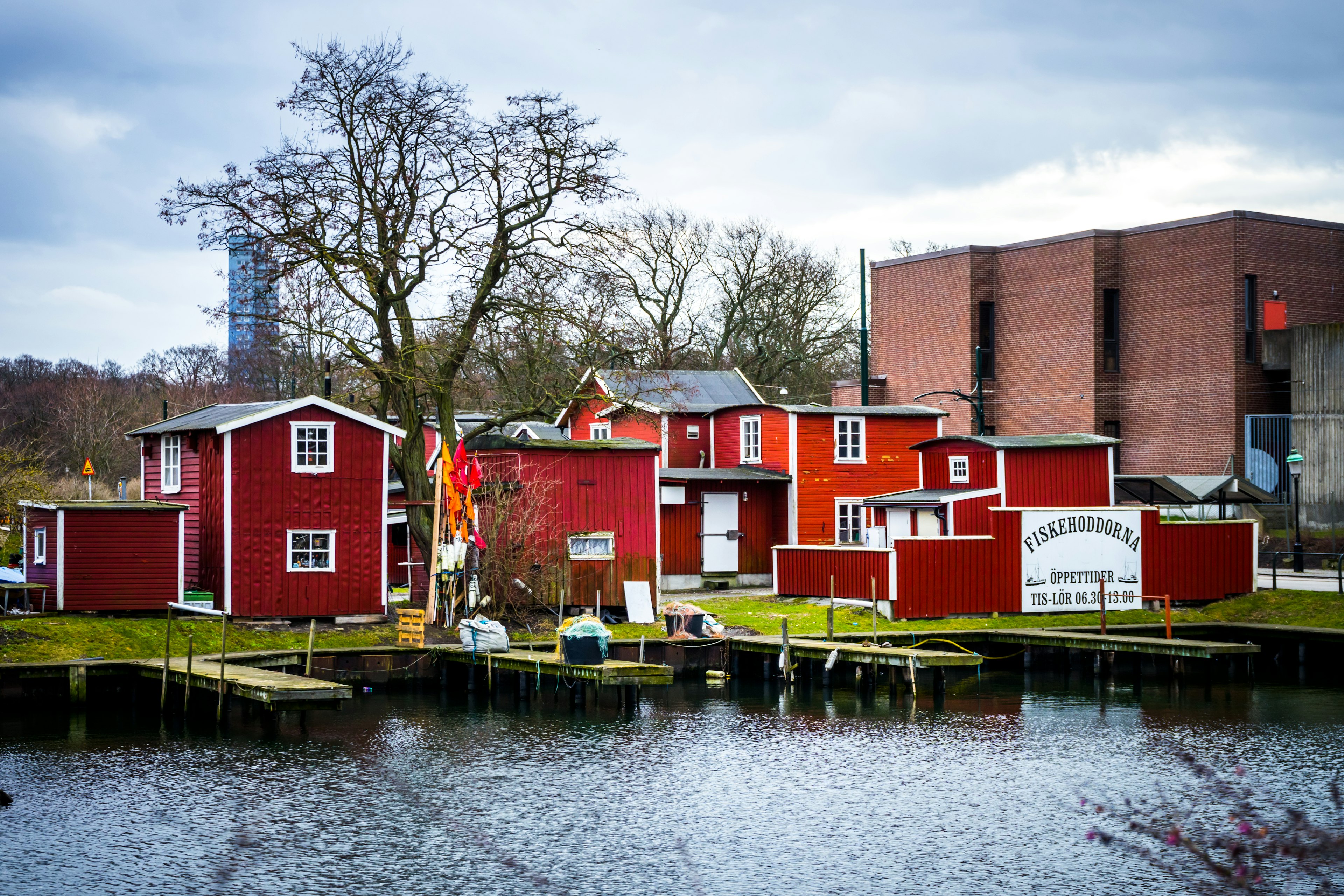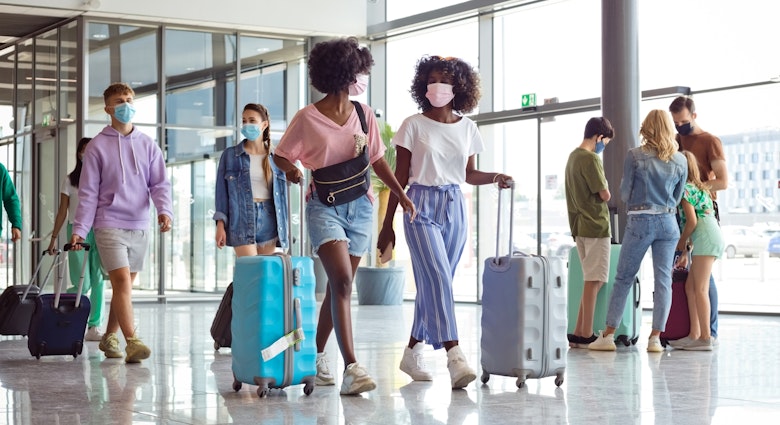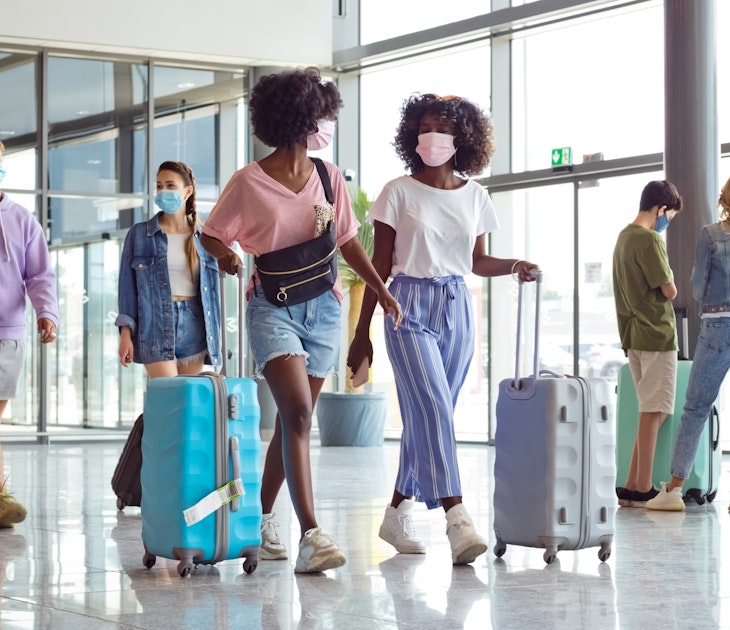
Sweden joins Norway and Denmark lifting all COVID restrictions and reopening to travelers

Feb 10, 2022 • 3 min read

Stockholm Fashion Week returned this week in Sweden. Eklund and Fanny Ekstrand outside the College of Design show on February 8 © Raimonda Kulikauskiene/Getty Images
Sweden took a big step this week towards moving to post COVID living, with the lifting of almost all restrictions, and the welcoming of visitors from many countries, with no requirement to show proof of vaccine.
Effective from February 9, people can enter Sweden who are coming directly from EU countries. Travelers can also travel from the EEA countries of Iceland, Norway, Liechtenstein and also Switzerland. Visitors to Sweden from these countries do not have to show proof of vaccination, or a negative COVID result to enter the country.
A ban on non-essential travel is still in place until March 31 for people entering Sweden from anywhere outside the EU, Switzerland or the three countries of the EEA. Until then, anyone arriving into Sweden from these countries must meet and provide a negative PCR test result taken within 72 hours before arrival.
Read more: Sweden's most beautiful beaches: from sunbathing near the Arctic Circle to lakeside lounging
The announcement means Sweden has effectively ended all COVID restrictions from this week. Bars and restaurants can remain open past 11 pm, there is no longer a requirement to present vaccination certification. There are no longer limits on the number of people who can attend large indoor events, and the requirement to wear masks on public transport is gone.

City square tents set up for COVID testing throughout the country and drive-in testing centres have now closed. Antigen tests are still available to buy in pharmacies and stores, but those testing positive won’t have their results recorded. Private health care agencies will also provide testing for those who require proof for travel, but the costs won’t be reimbursed. The Swedish government no longer requires those who test positive to record their results, so the country will no longer have data on COVID infection rates. Sweden stood out amongst European countries for adopting the policy of not introducing lockdowns or closing of restaurants or bars.
Read more: 11 Swedish hiking trails you won’t want to miss
Sweden joins its Scandinavian neighbors Denmark and Norway who were the first to ease restrictions a week ago. Norway announced the easing on many regulations; however social distancing measures are still in place with people asked to stay one meter apart and to wear face masks when in busy indoor settings. The Norwegian government is reported to be planning to abolish all remaining measures by February 17. Travelers into Norway must still show a valid COVID-19 digital certificate (showing vaccination or recent recovery from infection), or supply proof of a negative COVID-19 test taken within 24 hours before departure.
Denmark the first European country to lift all COVID restrictions
Last week Denmark ended the need for social distancing, mask wearing and isolation requirements for those who test positive. The European country was one of the first to lockdown hard when the pandemic hit, but the country has now said it no longer regards COVID as a ‘socially critical disease’. The government has abolished it’s digital COVID pass and face masks are now only required in hospital or nursing home settings.
Currently travelers from all over the world can enter Denmark once they are vaccinated. Danish authorities last month announced the list of vaccines recognized for entry was being expanded with the four additional vaccines - Covishield, Covaxin, Sinovac, and Sinopharm- which also appear on WHO’s list of vaccines approved for use. They join the list of Pfizer/BioNTech, Moderna, AstraZeneca and Janssen as recognized vaccines for entry to the country. Anyone who has proof of recent recovery from COVID-19 is also permitted to travel into Denmark.
"Two years into the pandemic, populations in most countries have reached high levels of immunity, from vaccines or natural illness", Danish epidemiologist Lone Simonsen of the University of Roskilde told AFP. "This is how it ends, judging from what we have seen with historical pandemics".
Read more:
Morocco has reopened to travelers. Here's what to expect
Philippines set to ease restrictions on fully vaccinated international tourists
Traveling to the Canary or Balearic islands in Spain? Here’s what to expect
Explore related stories

Air Travel
Spain and Italy keeping face covering on flights, despite Europe dropping mask mandateMay 16, 2022 • 4 min read

 COVID-19Traveling to Europe with kids? What to know about vaccination and entry rules
COVID-19Traveling to Europe with kids? What to know about vaccination and entry rulesMar 31, 2022 • 8 min read
 COVID-19Sweden to lift final entry bans in April as it opens to travelers worldwide
COVID-19Sweden to lift final entry bans in April as it opens to travelers worldwideMar 29, 2022 • 2 min read
 COVID-19Iceland is lifting all COVID-19 restrictions - what does that mean for visitors?
COVID-19Iceland is lifting all COVID-19 restrictions - what does that mean for visitors?Feb 24, 2022 • 1 min read
 COVID-19You no longer need to take a COVID-19 test to travel to France - if you're vaccinated
COVID-19You no longer need to take a COVID-19 test to travel to France - if you're vaccinatedFeb 14, 2022 • 2 min read

 Air TravelThese countries have imposed travel restrictions due to the Omicron COVID-19 variant
Air TravelThese countries have imposed travel restrictions due to the Omicron COVID-19 variantNov 30, 2021 • 6 min read
 COVID-19What new COVID-19 restrictions are being imposed in Europe as Omicron spreads?
COVID-19What new COVID-19 restrictions are being imposed in Europe as Omicron spreads?Nov 29, 2021 • 6 min read
 COVID-19The UK is the latest country to consider COVID-19 booster shots for travel
COVID-19The UK is the latest country to consider COVID-19 booster shots for travelNov 18, 2021 • 4 min read
